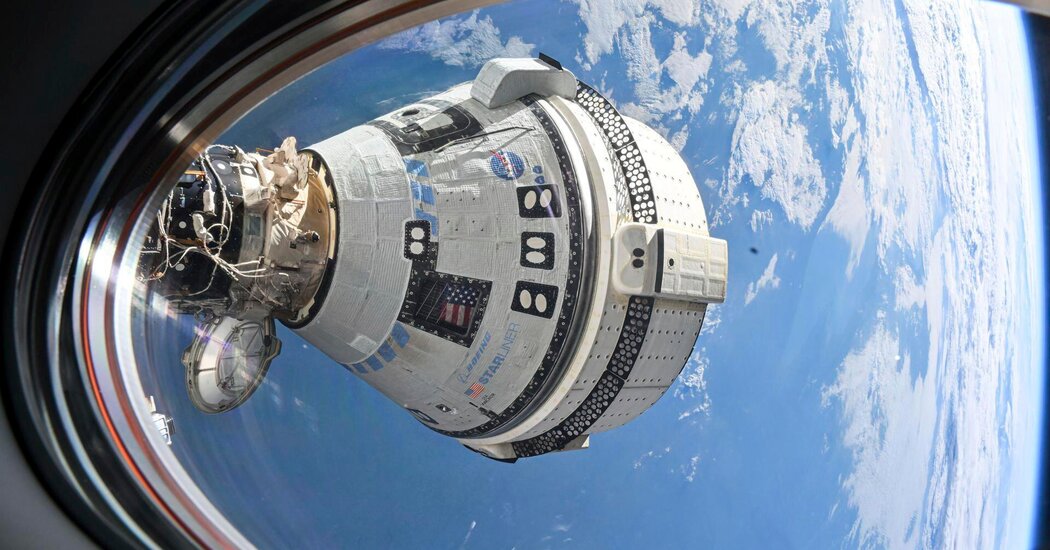- September 7, 2024
- Posted by: Regent Harbor Team
- Category: Business

Let’s talk Boeing, straight from the concrete jungle – ain’t no sugarcoating here.
Contents
The Past and Present of Boeing’s Space Programs
Boeing’s got a long history in the space biz, starting way back with the first mission to take an American to space. But fast forward to now, and things are getting a bit dicey for them.
Trouble with Starliner
When it comes to Boeing’s latest and greatest, their Starliner capsule safely returned to Earth from the International Space Station (ISS) on Friday night. Problem is, it was sans the two astronauts it took up there in June. NASA, worried about faulty thrusters, decided to leave them behind.
The reality? Boeing’s been playing catch-up, while SpaceX has completed seven ISS missions. Time’s ticking with the station set to retire as soon as 2030. The big question: will Boeing get another shot to prove themselves?
A Shaky Future
NASA’s Dilemma
NASA wanted both Boeing and SpaceX to shuttle astronauts back and forth. But so far, SpaceX is the clear favorite. That’s bad news for Boeing. Ron Epstein from Bank of America warned last month that Boeing might even ditch manned spaceflight entirely.
And despite all this drama, NASA boss Bill Nelson said he had "100 percent faith" in Starliner’s ability to carry astronauts again. Is it optimism or a leap of faith?
A Broader Aerospace Issue
Space programs aren’t just about strapping someone to a rocket and lighting the fuse. Jason Gursky from Citi lays it out: "Death, taxes, and delayed space programs — those are things that you know are going to happen." Space is hard, folks, and delays are the norm. For Boeing, those delays have cost a pretty penny – Starliner alone has racked up over $1.5 billion in cost overruns. And let’s not forget that near-disaster test flight in 2019, thanks to software errors.
Competition Heats Up
On the other side of things, SpaceX, headed by Elon Musk, has made history. Sure, they’ve had their hiccups, like the Falcon 9 rocket failure in July. Even the FAA grounded their rocket briefly. Yet, they’ve continually pushed the envelope.
Meanwhile, Airbus – Boeing’s main rival in the plane biz – announced nearly a $1B charge thanks to satellite troubles. When Boeing’s not dealing with space, they’re juggling problems like those infamous 737 Max crashes. Yee, not exactly smooth sailing.
Industry Pressure and Rivalry
The Boom of SpaceX and Co.
SpaceX isn’t the only player in town. Jeff Bezos’ Blue Origin and others are hustling hard. The private-sector space race is in full swing. Legacy companies like Boeing and Lockheed Martin have made their plays by acquiring small satellite makers to keep up.
The result? The global space economy isn’t just growing – it’s booming, more than doubling over the past decade, hitting about $570 billion last year, says the Space Foundation.
The Challenge of Talent Wars
All this competition means there’s a serious talent war going on. Elliott Bryner from Embry-Riddle Aeronautical University spills the tea: grad students are drifting towards SpaceX, Blue Origin, and start-ups like Ursa Major or Firefly Aerospace. They want action now, not a desk job at more established giants like NASA or Boeing.
Quality Control and Budget Woes
The Space Launch System (SLS) Headache
The hits keep coming for Boeing. NASA’s inspector general flagged issues with their Space Launch System (SLS) – you know, the rocket meant to take us back to the moon. Boeing’s process for fixing quality control issues? Ineffective. Their workforce at Michoud Assembly Facility? Lacking in qualified hands, partly because Boeing won’t pay competitive wages.
What’s that mean in dollars and cents? An additional $700 million on top of the initial $5 billion budget. The first flight, supposed to be in September 2028? Big maybe on that.
A Glimmer of Hope?
Boeing’s Stance
In response, Boeing disagrees with many of these assertions, saying their workforce is qualified, though it seems like they’re a bit defensive. And despite their woes, Boeing still contributes massively to space, from parts of the ISS to government satellites.
The Need for Diversification
Boeing and Lockheed Martin might even sell off their joint rocket venture, United Launch Alliance (ULA), as Reuters and Bloomberg have reported.
The Final Frontier or a Final Curtain?
So, where does this leave Boeing? They’ve got a lot on their plate and time’s not on their side. With space stations retiring and new competitors on the rise, it’s a make-or-break moment. Whether they soar or crash and burn, only time will tell. Keep your eyes to the skies, folks.
Kenneth Chang contributed reporting.
Feel free to dive deeper with links sprinkled throughout. It’s a wild, high-stakes rollercoaster in the world above us.
